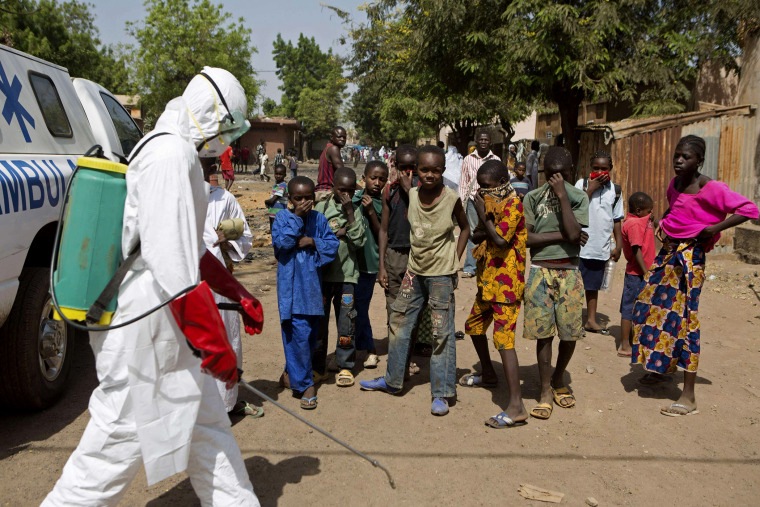Passengers traveling from Mali will now face heightened screenings after a handful of cases of Ebola were reported in the West African country.
Already, travelers arriving in the U.S. after spending time in the three top Ebola hotspots, Sierra Leone, Guinea and Liberia, are extensively screened, subject to lengthy interviews and have their temperature taken before being allowed entry. Now, passengers from neighboring Mali will be subject to deeper screenings, after two people, weeks apart, were found to have Ebola after their deaths, leaving an unknown number exposed to the deadly virus.
Passengers visiting from all four countries will be subject to three weeks of monitoring after their arrival, the longest incubation time of Ebola.
The new screenings are the latest precaution put in place by the president’s administration to keep Ebola at bay. Despite Republicans’ fiery criticism that the deadly virus couldn’t be contained through extensive screening and monitoring, the U.S.' Ebola precautions have so far worked.
Just a handful of Ebola cases have been treated here in the U.S; the majority are aid workers brought here for treatment.
RELATED: Ebola czar Ron Klain’s mission
The first case diagnosed on U.S. soil occurred in September, when Thomas Eric Duncan, a Liberian man who came to the U.S. to marry his fiancé, presented with the deadly virus. He infected two nurses before dying himself, and their infection spread fear of the disease spread like wildfire.
PHOTO ESSAY: Ebola continues its deadly march
Republicans and other critics called for a full travel ban, even as experts said that would exacerbate the outbreak in West Africa and make crucial contact tracing even more difficult if people lied to gain entry. Their criticism was renewed when an aid worker in New York City developed the disease, after famously going bowling and taking public transportation. But that doctor, Craig Spencer, did not infect anyone else and was released from the hospital last week, virus free.
The country was briefly free of active Ebola cases, until the country’s tenth Ebola patient, Dr. Matin Salia, arrived in Nebraska for treatment. On Sunday, the hospital reported that Salia is in “extremely critical condition.”
RELATED: American nurses head to Liberia to fight Ebola
Already, more than 5000 have died from the disease in West Africa and the World Health Organization estimates that many more will become infected before the outbreak ends.
